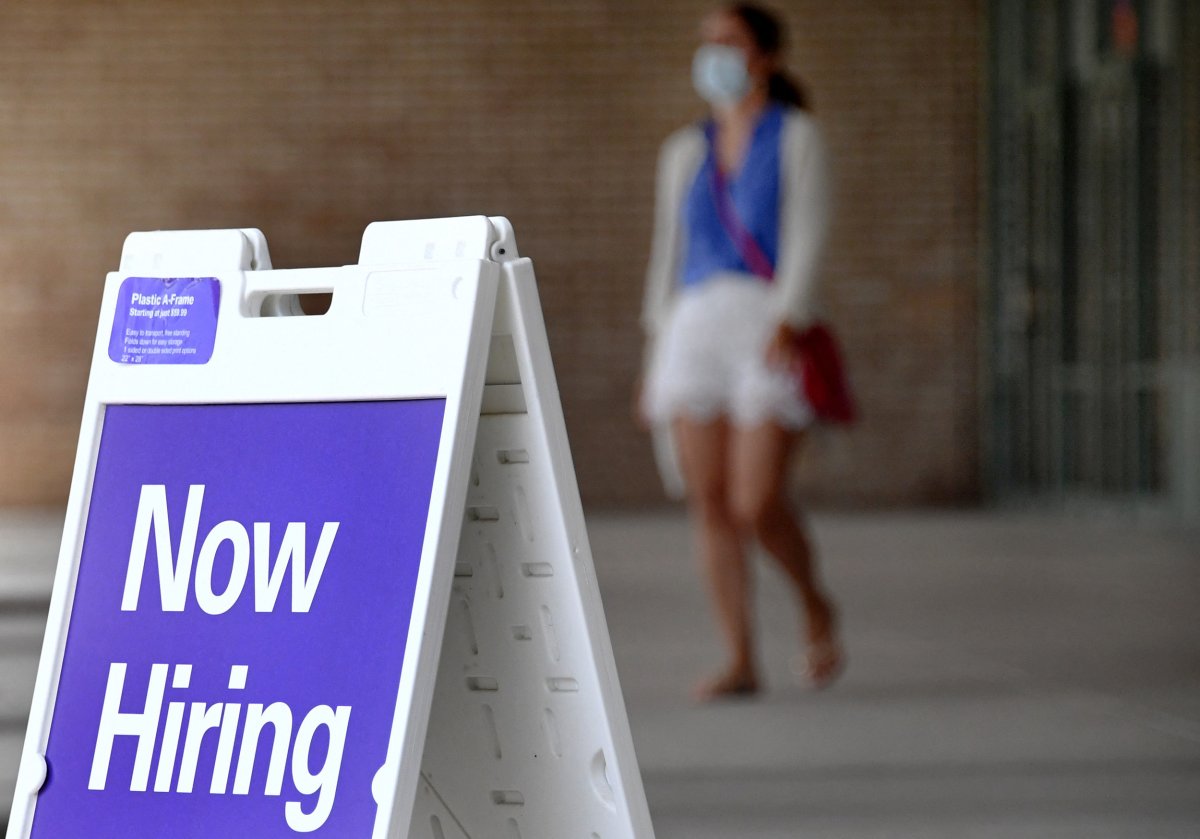Among the widespread and varying impacts of the pandemic, COVID-19 has taken an especially heavy toll on working women, the Associated Press reported. A new report from the consulting firm McKinsey & Co., titled "Women in the Workplace," details how more women are considering leaving the workforce and feeling burned out in 2021 than in 2020.
The study found that in the past year, one in three women thought about either leaving their jobs or "downshifting" their careers. Early in the pandemic, one in four women had made the same considerations, according to the report.
More women are also feeling more burned out now than they were a year ago, "and the gap in burnout between women and men has nearly doubled," the report said. In 2021, 42 percent of women said they felt burned out, while 32 percent said so in 2020.
For men, 35 percent said they felt burned out this year, compared to 28 percent in 2020, the AP reported.
For more reporting from the Associated Press, see below.

The pandemic has both laid bare the disproportionate burdens many women shoulder in caring for children or aging parents and highlighted the vital roles they have long played in America's labor force. The United States bled tens of millions of jobs when states began shuttering huge swaths of the economy after COVID-19 erupted. But as the economy has swiftly rebounded and employers have posted record-high job openings, many women have delayed a return to the workplace, willingly or otherwise.
Even with children back in school, the influx of women into the job market that most analysts had expected has yet to materialize. The number of women either working or looking for work actually fell in September from August. For men, the number rose.
For parents of young children, the male-female disparities are stark. Among mothers of children 13 or younger, the proportion who were employed in September was nearly 4 percent below pre-pandemic levels, according to Nick Bunker, director of economic research at the Indeed job listings website. For fathers with young children, the decline was just 1 percent.
"A lot of women have left the labor force—the question is, how permanent will it be?" said Janet Currie, a professor of economics and public affairs at Princeton University and co-director of the Program on Families and Children at the National Bureau of Economic Research. "And if they're going to come back, when will we see them come back? I don't know the answers to any of that."
Many economists and officials, including Federal Reserve Chair Jerome Powell, had speculated that the re-opening of schools would free more mothers to take jobs. So far that hasn't happened. The Delta variant caused temporary school closings in many areas, which might have discouraged some mothers from returning to work in September. The number of mothers who were employed actually declined for a second straight month.
Still, economists are holding out hope that with increasing vaccinations leading to fewer viral cases, Friday's U.S. jobs report for October will show an increase in the number of employed women. Any gain, though, is likely to be small, and it could take months to at least partially reverse the pandemic's impact on female employment.
A major reason, Currie noted, is the worsening difficulty of finding reliable and affordable child care.
That crisis, Currie suggested, is "probably making some people's minds up for them because if you can't get childcare and you have young children, somebody has to look after them."
Besides childcare, experts point to other factors that have kept some women out of the workforce. The number of people who aren't working because they're caring for sick relatives remains elevated. And surveys by the job listings website Indeed have found that many of the unemployed aren't searching very hard for jobs because their spouses are still working.
As the pandemic erupted in the spring of 2020, roughly 3.5 million mothers with school-age children either lost jobs, took leaves of absence or left the labor market altogether, according to an analysis by the Census Bureau.
Months before the pandemic, Keryn Francisco, a 51-year-old former designer for The North Face, had to decide whether to move, along with her company, to Denver.
She ultimately decided not to leave. And as COVID-19 raged, she became more comfortable with her decision, even if it meant being unemployed and shrinking her severance payout. She had been collecting unemployment aid and has picked up some freelancing to avoid dipping too deeply into savings.
A solo parent, Francisco wanted to focus on caring for her son, now 10, and her elderly parents in the San Francisco Bay area.
"It was out of a sense of responsibility and obligation," she said. "But also, honestly, I didn't know what was happening with COVID. So there was a lot of fear and kind of insecurity about like, if my parents died."
During her time away from work, Francisco made a discovery that hadn't quite seemed clear to her before: "I was burned out." Now, she's considering the conditions for a full-time return to the workforce.
"Once you leave the corporate treadmill," she said, "you can actually catch your breath. Something does change inside of you."
Many other women can't afford to be so choosey, even if they'd like to. Tens of millions of working women, many of them people of color, labor in low-wage jobs and struggle to afford rent, food, utilities and other necessities.
"There may be labor shortages, but lots of folks are working right now and do so because there is really no choice," said Debra Lancaster, executive director for the Center for Women and Work at Rutgers University. "They need to work to put food on their table."

Uncommon Knowledge
Newsweek is committed to challenging conventional wisdom and finding connections in the search for common ground.
Newsweek is committed to challenging conventional wisdom and finding connections in the search for common ground.
About the writer
Zoe Strozewski is a Newsweek reporter based in New Jersey. Her focus is reporting on U.S. and global politics. Zoe ... Read more
To read how Newsweek uses AI as a newsroom tool, Click here.








